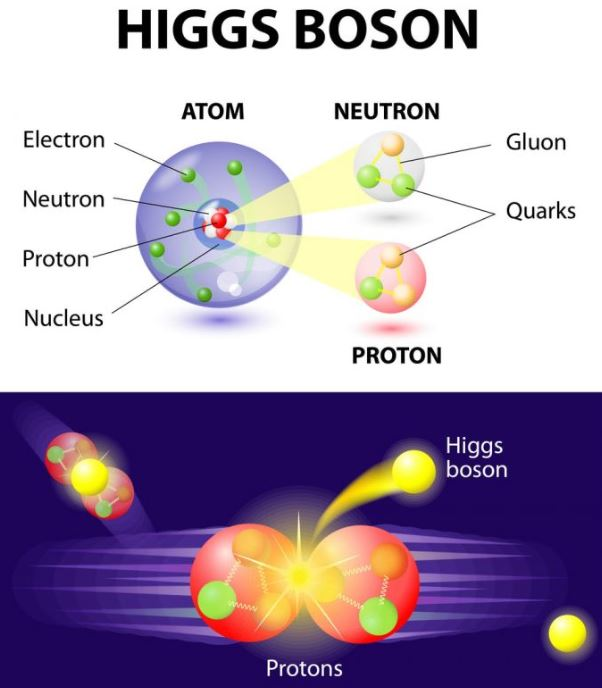Table of Contents
Context: Physicist Peter Higgs who came up with the idea of the “Higgs boson particle” or “God particle”, has passed away aged 94.
Higgs Boson Particle or God Particle
The “God Particle” is a popular nickname for the Higgs boson, an elementary particle first discovered in 2012 at CERN, the European Organization for Nuclear Research. The Higgs boson is a fundamental particle that is theorized to be responsible for giving mass to other elementary particles.

Discovery of Higgs Boson Particle
- The Higgs boson, an elusive elementary particle pivotal in the field of particle physics, was discovered in 2012 after nearly half a century of theoretical predictions and experimental searches.
- This monumental achievement was realised using the Large Hadron Collider (LHC), the most extensive and sophisticated machine ever built, located on the France-Switzerland border.
- The particle’s existence had been theorised in the 1960s as a fundamental component that imparts mass to other particles, but it remained undetected until the sophisticated experiments conducted at the LHC confirmed its presence.
Significance of the Discovery
- The discovery of the Higgs boson completed the Standard Model of Particle Physics, a theory explaining the fundamental building blocks of matter and the forces that govern them.
- Understanding the Higgs mechanism, by which particles acquire mass, is a significant step forward in the quest to unravel the mysteries of the universe.
About the God Particle
- The Higgs boson is integral to the Standard Model, as it is associated with the Higgs field, a field that permeates the universe and gives mass to particles that interact with it.
- Different particles interact with the Higgs field with varying degrees of strength, which in turn gives them different masses.
- For example, photons do not interact with the Higgs field and hence are massless, while particles like protons and electrons acquire mass through their interaction with the field.
- The discovery of the Higgs boson not only provided a mechanism for understanding mass but also helped complete the Standard Model of Particle Physics.
- However, the model leaves unanswered questions about the universe, such as the mysteries of dark matter and dark energy.
Contribution of Peter Higgs
- Peter Higgs, after whom the Higgs boson is named, played a pivotal role in the theoretical prediction of the particle.
- Nicknamed the “God particle” (a term many scientists dislike due to its religious connotations.
- Despite his beginnings in molecular biology, Higgs shifted his focus to particle physics, where he made his indelible mark.
- He proposed the existence of a field (later known as the Higgs field) that could explain the mass of elementary particles, a hypothesis that eventually led to the prediction of the Higgs boson.
- Higgs was not a prolific writer, authoring only about a dozen papers in his career, mostly working in isolation due to his extremely shy nature.
- Despite the vast interest in his work and its implications, Higgs maintained a low profile, famously avoiding the limelight even when the Nobel Prize in Physics was awarded to him and Francois Englert in 2013 for their work on the Higgs boson.
- His avoidance of modern communication technologies and preference for a secluded life underscored his modest and reclusive personality.


 National Technology Readiness Assessment...
National Technology Readiness Assessment...
 Justice Mission-2025: China’s Live-Fir...
Justice Mission-2025: China’s Live-Fir...
 Suryastra: First Made-in-India Long-Rang...
Suryastra: First Made-in-India Long-Rang...

























